Can a Registrar Marry You at Home? Exploring Your Options
Thinking about tying the knot at home? You’re not alone. Many couples dream of a personal and intimate wedding right in their own living space. This idea brings the comfort of home together with the special occasion of marriage, making it unique and personal.
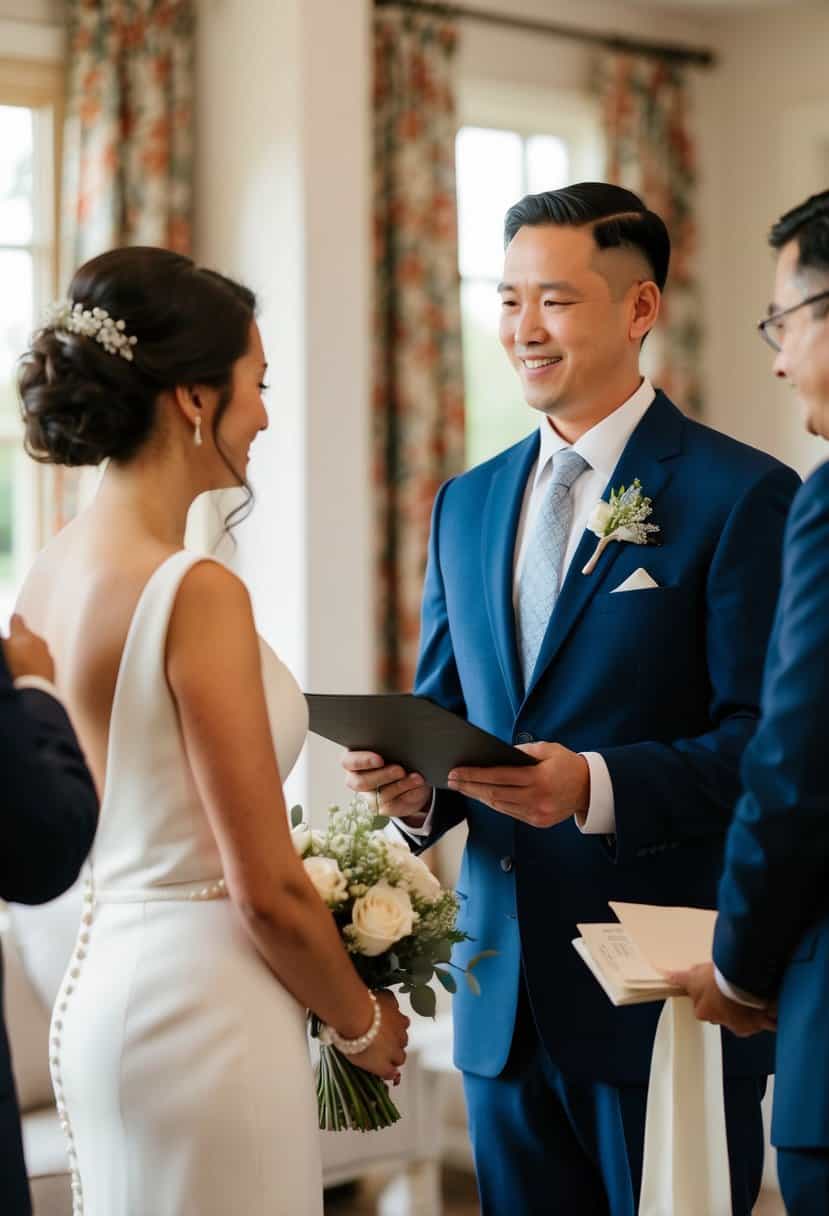
In England and Wales, a registrar can marry you at home if your home is an approved venue. If you want to keep things simple or private, getting married at home is a fantastic option. A registrar can conduct legally binding ceremonies, so you’re covered in that department too.
When planning to marry at home, it’s essential to check if your location meets any legal requirements. Sometimes, you need to get approval or permits to ensure everything runs smoothly. That way, your day is beautiful and stress-free.
Legal Requirements for Marriage

To get married, you need to follow certain legal steps, such as giving notice of marriage and obtaining necessary documents. These steps ensure that your marriage is recognized by law and run smoothly, whether you’re planning a civil ceremony or a religious one.
Giving Notice of Marriage
Before you can get married, you and your partner must give notice at your local register office. This means you have to inform them about your intention to marry. Typically, you’ll need to provide documents such as passports or birth certificates as proof of your identity and nationality.
In England and Wales, the notice must be given at least 29 days before your wedding. You both must have lived in the registration district for at least seven days prior to giving notice. If you’re having a civil ceremony, all your details will be displayed publicly at the register office for 28 days. This period allows for any legal objections.
Marriage Schedule and Certificate
After giving notice, a marriage schedule is issued for civil ceremonies, while a marriage certificate is needed for religious ones. The schedule or certificate will be completed and signed during your ceremony.
For civil marriages, the schedule is an essential document and must be obtained from the register office where you gave notice. On your wedding day, the officiant and witnesses will sign this document. After the ceremony, return the completed schedule to the registrar to officially register your marriage and receive your marriage certificate. This certificate acts as legal proof of your marriage under family law.
Roles of a Registrar
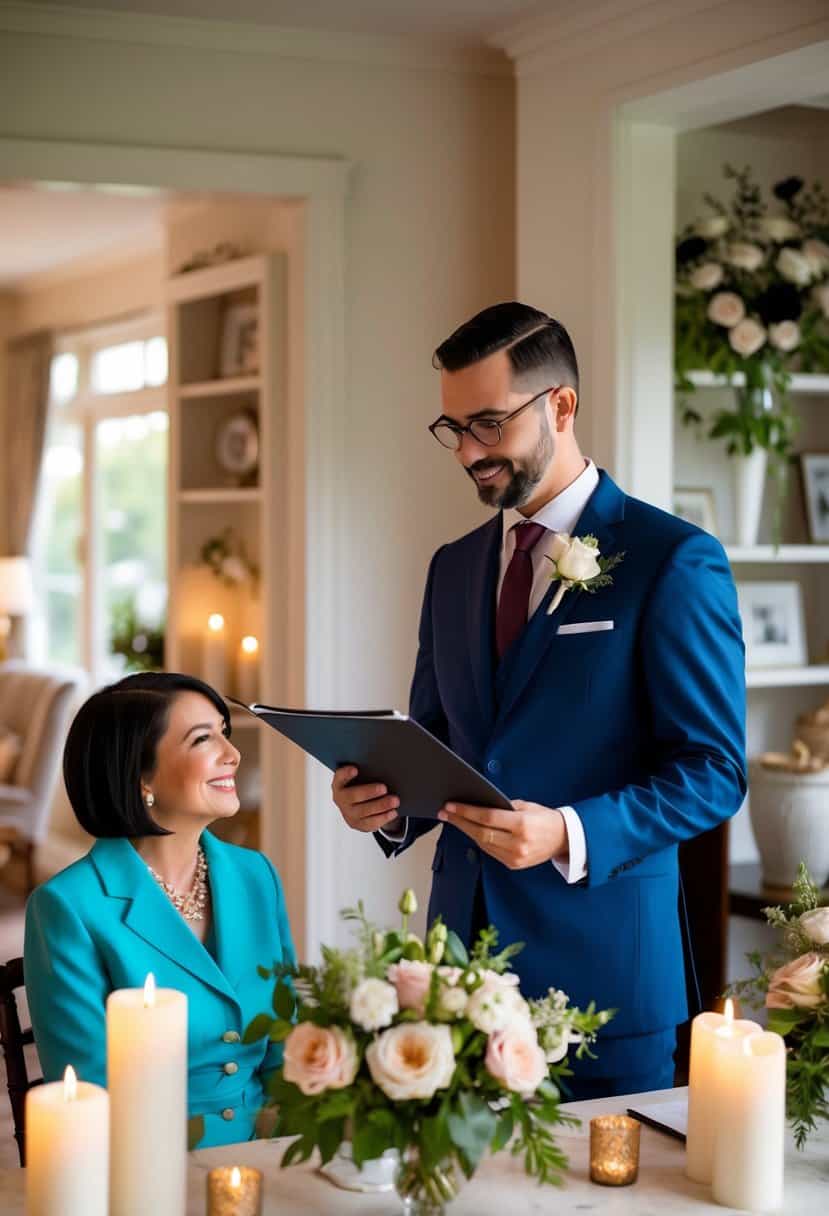
A registrar plays an important part in formal ceremonies. They ensure that marriages are legally binding and adhere to regulations. Learning more about their roles can help you understand what to expect during a marriage ceremony.
Civil Ceremonies
You might choose a civil ceremony if you prefer a non-religious union. A registrar leads these ceremonies, focusing on the legal side of marriage. They cannot include religious or spiritual elements in the event.
Registrars work within strict guidelines to ensure the ceremony follows official procedures. They conduct these ceremonies at a registrar’s office or another approved venue. The venue must meet certain legal standards, as the registrar cannot perform the ceremony elsewhere without approval.
Legal Statement by the Registrar
During the ceremony, the registrar ensures the couple and witnesses understand the legal implications of marriage. You will hear a legal statement read by the registrar. This part is essential for the marriage to be recognized legally.
Registrars also verify that all legal documents are in order before the marriage. They check identification and ensure the correct paperwork is completed. This includes signing the marriage register, which the registrar also oversees, ensuring everything aligns with legal requirements.
Authorisation of Venues
Not all locations are suitable for a legal marriage ceremony. Registrars can only conduct ceremonies at certain venues that meet specific criteria. These approved premises are inspected to ensure they comply with legal standards.
If you have a particular location in mind, confirm whether it is an approved venue. You might need to get the venue authorised for your ceremony. The registrar helps guide you through this process, explaining what’s possible according to the rules. This way, you can have your ceremony at a location that is meaningful to you and also compliant with legal requirements.
Choosing Your Venue
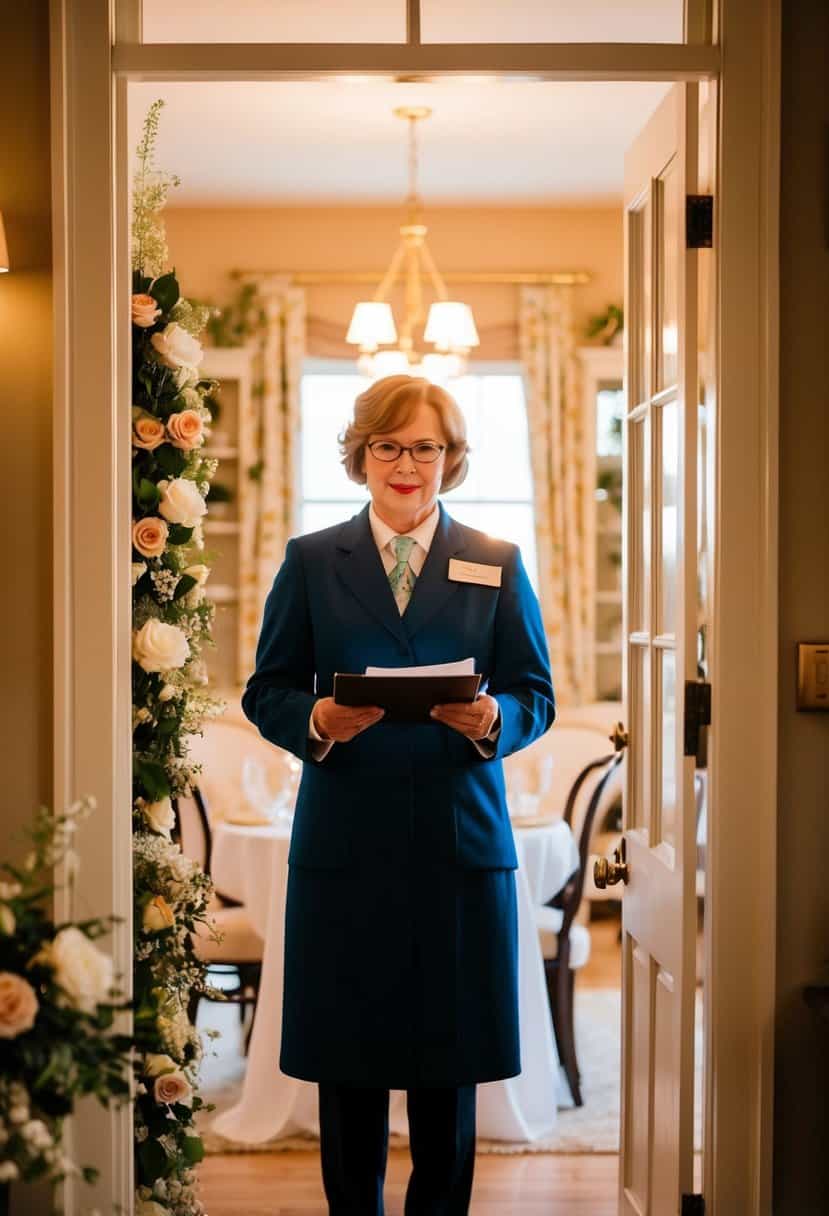
Deciding where to hold your wedding is a big step, and there are several options depending on what you envision for your day. You can choose between traditional settings like register offices and approved premises or explore more unique locations.
Register Office vs. Approved Premises
Register offices are practical for smaller ceremonies, often located in town or city halls. These places are usually budget-friendly and deal with the legal aspects of your marriage or civil partnership efficiently. Additionally, they offer a straightforward atmosphere with limited guest accommodations.
On the other hand, approved premises provide more variety and flexibility. These venues include hotels, historic buildings, and other locations that have a license for ceremonies. Approved premises can offer beautiful settings and additional services like catering and decorations, making it easier to customize your wedding experience.
Outdoor and Unusual Venues
If you’re dreaming of an outdoor or more unconventional wedding, your options are varied. While it may not be possible for private homes to hold a legal ceremony in some regions, you can still hold your wedding in private gardens, parks, and other scenic spots like beaches or even cruise ships. These venues often deliver a special touch and allow plenty of room for creative ideas.
Remember, though, outdoor venues may require extra planning around weather and logistics. You’ll want to ensure you have necessary permits and arrangements, but they can provide an unforgettable backdrop for your big day.
Personalizing Your Ceremony
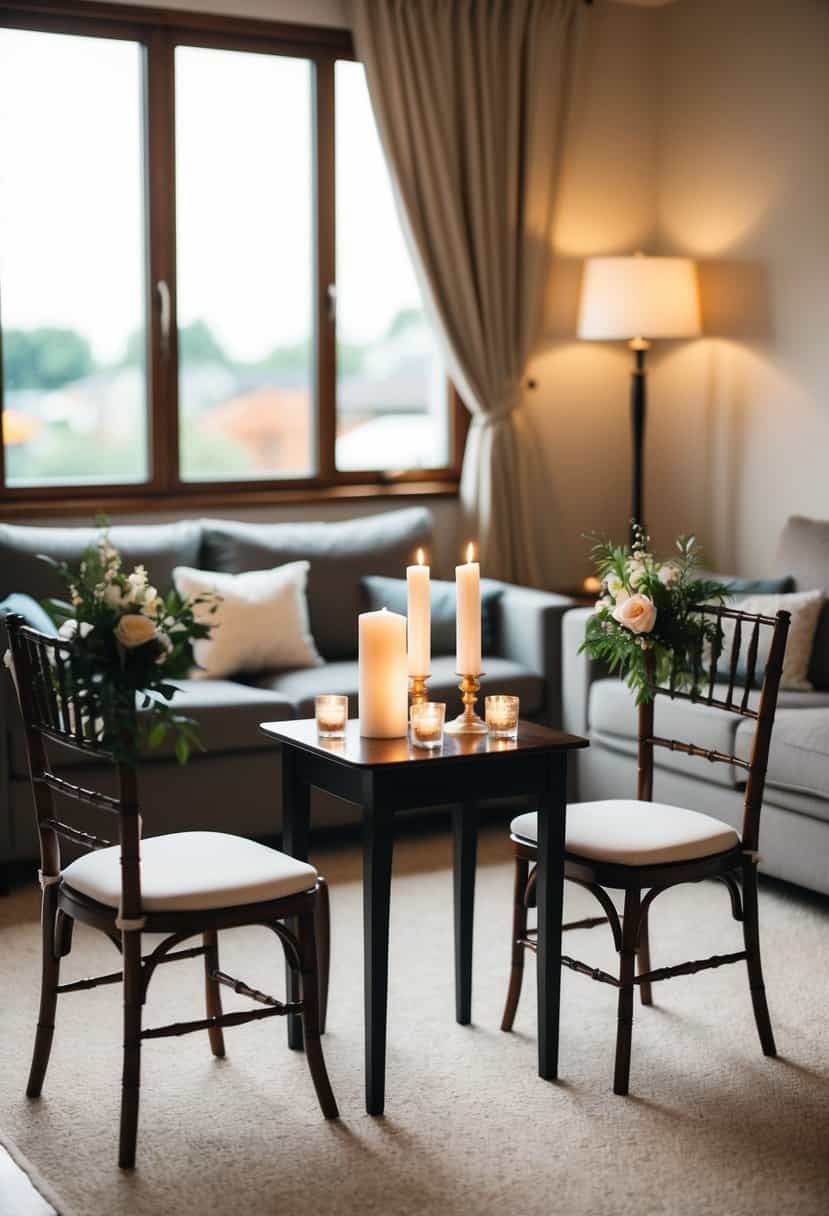
Creating a unique wedding is about making it truly yours. From selecting heartfelt vows to choosing music that reflects your story, there are many ways to add a personal touch to your special day. These elements allow you to express your love and commitment in a way that feels genuine to you.
Vows and Readings
Personal vows are a beautiful way to convey your feelings in your own words. You can write vows that capture your personal journey as a couple. Whether you want to keep it simple or add a touch of humor, your vows are a chance to express your love openly.
Readings can also add depth and meaning. Consider including passages from favorite books or quotes that resonate with your relationship. Involving family or friends in these readings can provide a shared experience that enhances the emotional depth of the ceremony.
Music and Songs
Music plays an essential role in setting the mood. Choose songs that have a special connection to your relationship or lyrics that mirror your feelings. Whether it’s an instrumental performed live or a playlist of meaningful tracks, music can create lasting memories.
For a civil ceremony, you might explore non-religious belief organizations that offer a variety of music choices. Customizing your playlist ensures each song fits the day perfectly. Including upbeat tunes or romantic ballads will craft the atmosphere you desire, making the day even more memorable.
Special Considerations
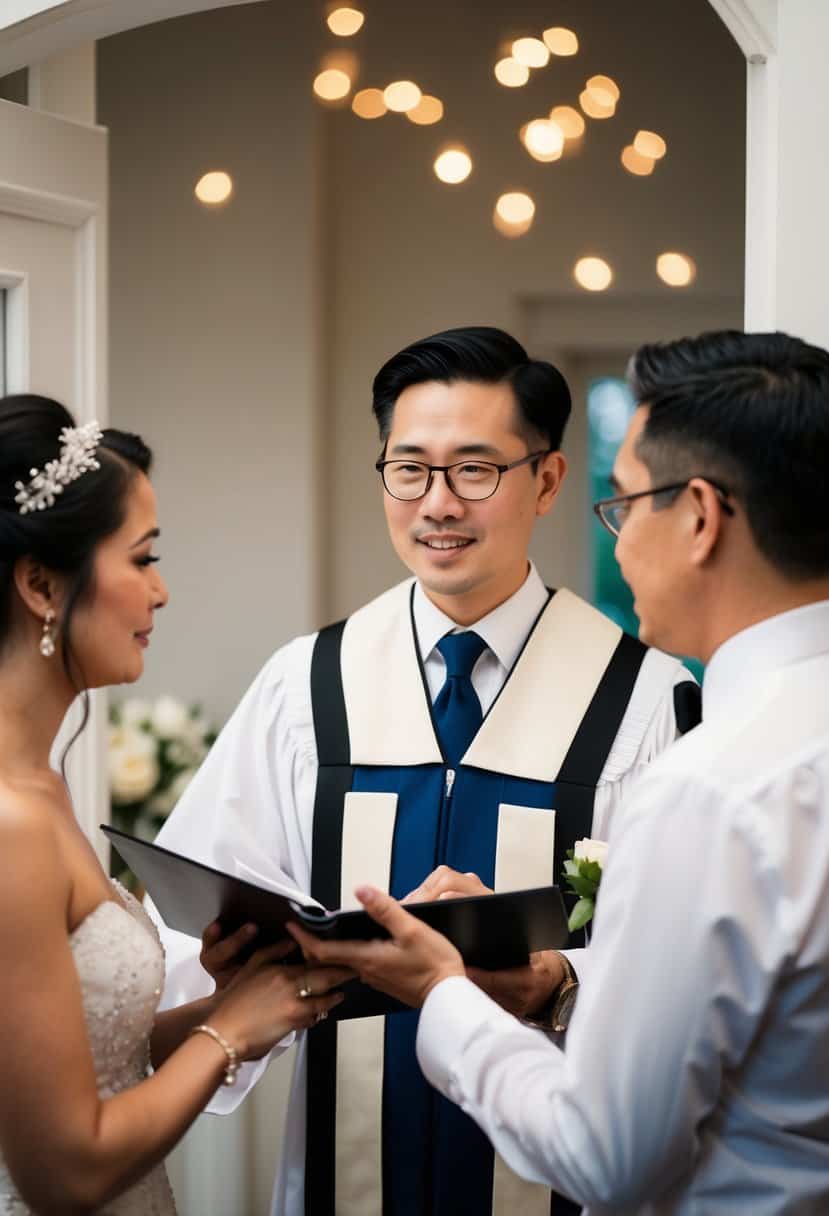
When planning a home wedding with a registrar, you need to consider unique factors. These include the impact of marriage equality laws for same-sex couples and the implications of EU settled status for non-citizens planning to marry.
Same-Sex Couples and Marriage Equality
If you are a same-sex couple, it’s important to know that marriage equality is recognized in many places. This means registrars can marry you at home just like any other couple. It’s important to check if your region has specific laws that affect same-sex marriage ceremonies at home. This can include venue restrictions or special guidelines on who can officiate.
While most areas support marriage equality, some places may have specific family law requirements. Contacting local registrars in advance can help ensure a smooth process. They can provide necessary paperwork and help resolve any potential issues. Staying informed about your rights is crucial for a stress-free wedding experience.
EU Settled Status and Marriage
If you or your partner have EU settled or pre-settled status, this can impact your wedding plans. The EU Settlement Scheme aims to secure your right to live in the country. However, you must adhere to legal requirements when getting married.
Make sure to have your marriage license sorted out before the wedding. Registrars will need proof of your status, so have your documents ready. This can include your settled status certificate alongside any other required identification.
If your partner does not have settled status, additional paperwork may be required. Always verify the current laws related to family law as they might change, and seek advice from a legal expert if needed.


